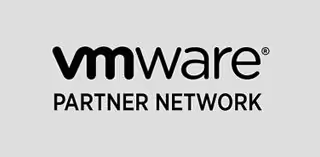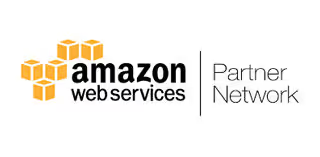Software Applications
Technology Excellence
Handcrafted technology solutions by our engineering team specifically for the construction industry.

Tech Alignment
BIM Collaboration
Power BI
Tech Adoption
Internet of Things
Technology Trends

Managed iT Services
.svg)
Managed Network Services
.svg)
Managed Infrastructure Services

Cyber Security Services

Professional Services
What our clients say about us?

Arrange a call with a Construction Tech Specialist

Read our latest articles on technology challenges in the construction industry
FAQ
At Lyon Tech, our infrastructure management services largely break down into cloud infrastructure, software-as-a-service, data storage and security, and unified communications.
Infrastructure management services (or ‘IMS’) are key for maintaining and optimising your IT framework, including servers, networks, storage, and hardware. Examples of infrastructure management can include monitoring performance, addressing system vulnerabilities, and managing updates and configurations. By leveraging Professional infrastructure Management Services, Businesses that leverage managed infrastructure services often see an enhancement in the reliability, scalability, and security of their IT frameworks, triggering a robust foundation for growth and innovation overall.
Inclusive onsite support service is offered with all tiered agreements and allows the engineer to attend the client premises where an issue can not be fixed remotely. Depending on the nature issue and the applicable service level agreements associated with each Tier the attendance will be facilitated within 30 mins and up to 3 days. In contrast fixed site visits provide a schedule time window where a member of the engineering team will be present at your offices for deskside support. These packages range from half a day a month to a day a week and depend on the requirements of the business.
Your staff are at the helm of your organisation, representing the enterprise and working with private and business information daily. Cyber security awareness courses are an effective approach to ensure the correct cyber processes are followed. It minimises risk and maintains your organisations information secure against cyber attacks. These awareness courses take place on an annual basis and are only offered to Tier 3 customers inclusively.
Your appointed account manager and our technology architects typically review your upcoming tech requirement for the following 36 months on an annual basis. This allows them to draft the IT strategy for the following 3 years and to constantly review and update the plan every 12 months.
The AEC industry stands for Architecture, Engineering, and Construction, encompassing sectors that collaborate to design, engineer, and build infrastructure and buildings. This industry integrates innovative technologies like Building Information Modeling (BIM), CAD software, and project management tools to enhance efficiency and precision. The AEC industry plays a vital role in creating sustainable, functional, and aesthetically appealing structures while addressing challenges such as urbanisation and environmental concerns. In the context of London-based IT support, the AEC sector relies heavily on robust IT services that can deliver cost-optimised infrastructures that accelerate, rather than hinder, key projects.
Building Information Modeling (BIM) is essential in the AEC industry as it provides a centralised platform for designing, visualising, and managing construction projects. BIM enables collaboration among architects, engineers, and construction teams by offering accurate 3D models, real-time updates, and detailed project insights. It improves efficiency by reducing errors, streamlining workflows, and supporting sustainable design practices. Additionally, BIM facilitates better decision-making throughout a building's lifecycle, from initial planning to maintenance, making it a critical tool for modern AEC projects. IT support providers familiar with the AEC sector, will be well-versed in getting the most out of BIM, its surrounding architecture, and its internal adoption.
IT outsourcing in North London provides businesses with expert IT support, that enables them to manage their technology infrastructure efficiently without the expense of an in-house team. When juggling the eye-watering costs and demands of the London market, outsourced IT support can provide a much-needed injection of affordable assistance, from helpdesk support to proactive system monitoring, and tailored IT solutions to meet local business needs. This ensures minimal downtime, enhanced cybersecurity, and the scalability needed to adapt to London’s fast-paced market.
Technology significantly enhances project management in the AEC industry by improving collaboration, efficiency, and accuracy. Tools like Building Information Modeling (BIM) facilitate coordination among architects, engineers, and contractors by centralising project data and enabling real-time updates. Project management software, on the other hand, can streamline scheduling, resource allocation, and task tracking, while cloud platforms support remote collaboration and file sharing. A reliable IT support provider for the AEC industry should help you craft a bespoke-to-your-business IT plan, including the implementation, maintenance, and management of key AEC tooling.
In the TV and film industry, IT support is key to managing the complex technical requirements of the production environment. This involves maintaining high-performance workstations, secure storage for large media files, and robust networks for collaboration across teams. Specialised IT support ensures seamless operation of editing and visual effects software, as well as secure backups and efficient rendering processes that guarantee the operation - and security - of the entertainment world.
Cyber security certifications for businesses such as Cyber Essentials or Cyber Essentials Plus have become common place in the UK. Most businesses have signed up to these certifications and have ran through the rigorous requirements of such certifications. Cyber Essentials and Cyber Essentials Plus are to help businesses secure themselves against well known online threats. These schemes where introduced and supported by the government with the help of the Information Assurance for Small and Medium Enterprises (IASME) consortium and the Information Security Forum (ISF). The requirements for both certificates are updated by IASME on an annual basis and businesses requiring to maintain their level of certification are required to be audited on an annual basis. Lyon has partnered with IT Governance (itgovernance.co.uk), by far the largest certification provider in the UK, delivering in the region of 5,500 certificates per annum, to deliver an end to end solution for business wishing to be certified.
Marketing, PR, and advertising agencies can benefit hugely from IT support designed to manage their technology-driven workflows efficiently. The right IT support provider can ensure the smooth operation of critical tools like CRM platforms, design software, and analytics systems while safeguarding sensitive client data with robust cybersecurity measures. By providing proactive maintenance, 24/7 troubleshooting on request, and scalable cloud solutions, IT support helps agencies enhance their productivity, and focus on delivering creative and impactful campaigns.
An IT support company for construction businesses, like Lyon Tech, can provide essential technology services to ensure smooth operations, on and off-site. These services include managing hardware, software, and network infrastructure, as well as offering support for project management tools, CAD software, and mobile devices used in the field. IT support for construction companies also focuses on securing sensitive project data, maintaining efficient communication between teams, and ensuring that all systems run optimally. By partnering with an IT support provider like us, construction companies enhance their productivity, reduce downtime, and ensure seamless integration of technology across their operations.
Having reliable IT support bespoke to the AEC sector is critical, thanks to the industry’s increasing reliance on technology. An effective IT support service team can ensure the implementation, integration, operation, and ongoing maintenance of AEC technologies, including timely issue resolution to avoid on and off-site downtime. Moreover, with cybersecurity risks increasing in the AEC sector, a robust IT support service is vital for protecting sensitive project data from potential threats. This not only safeguards the company’s reputation but also ensures compliance with industry regulations concerning data protection.










.png)
.png)
.png)
.png)
.png)
.png)
.png)
.png)
.png)
.png)
.png)
.png)
.png)
.png)








.jpg)

.png)